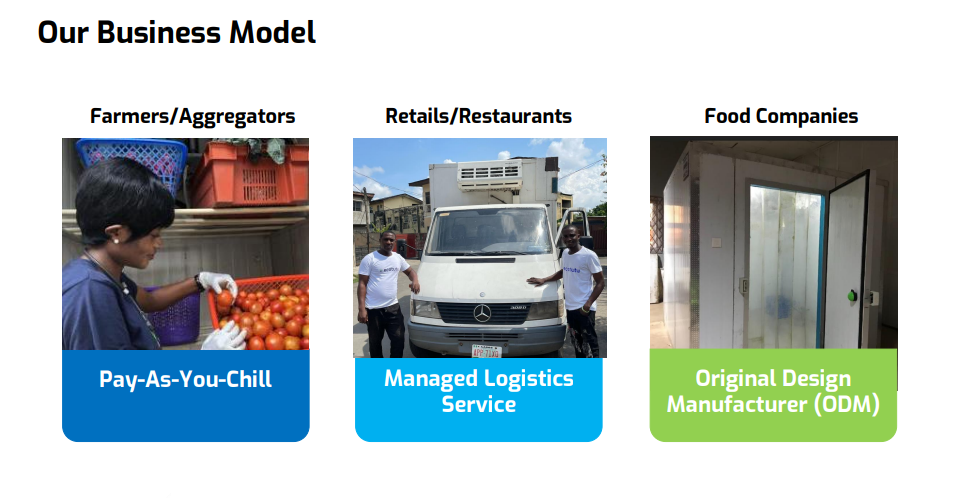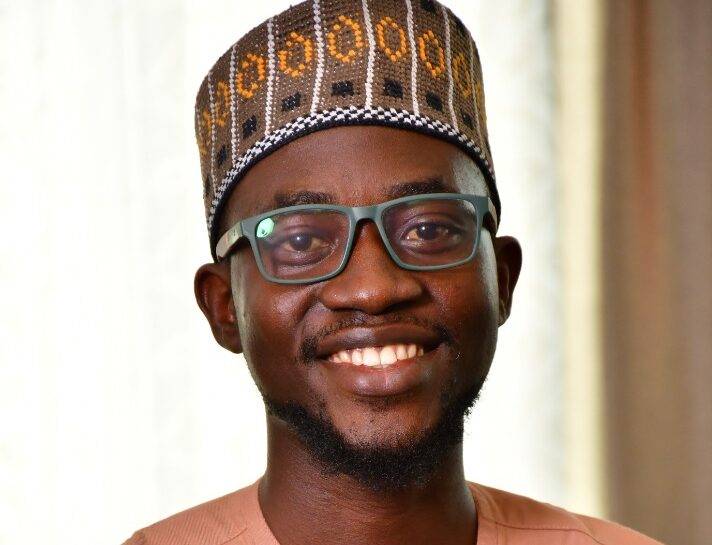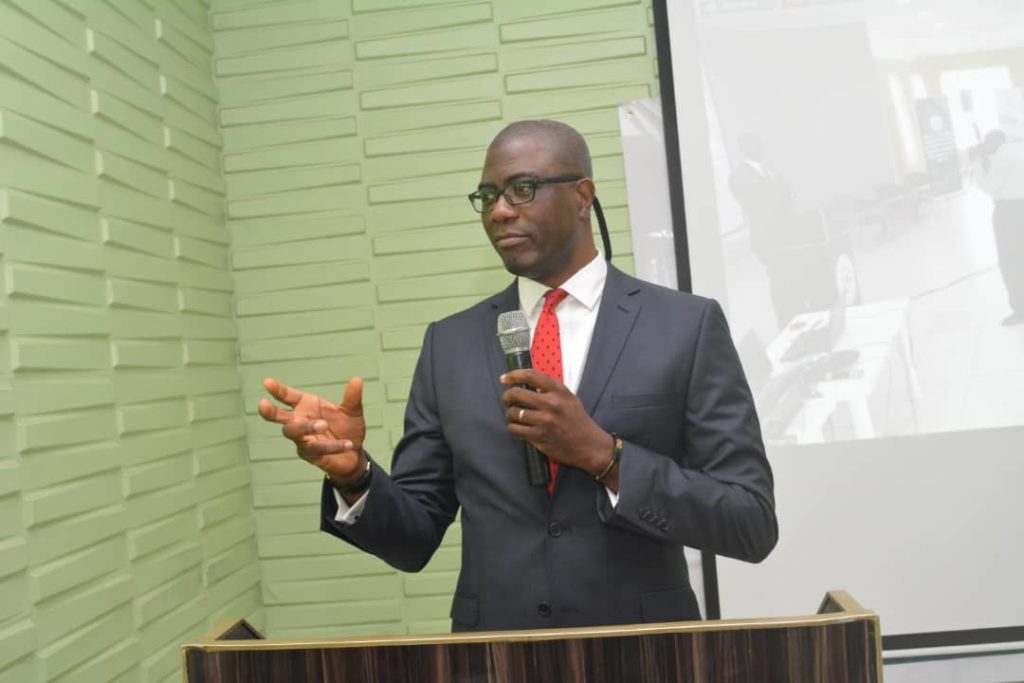One thing is common for startups, and that is the need to raise funds from investors. However, investors are only willing to invest in startups when their business ideas can solve actual problems. Also, startups must have good pitch decks.
It is important to understand how aspiring startup owners can convince investors to invest in their businesses in exchange for some equity in their startups.
Babajide Oluwase of Ecotutu recently won the hackathon at Zenith Bank’s Future Forward 2.0 technology event in November 2022. Nairametrics had a chat with him to gain insights into his business and the simple pitch deck that won the heart of investors.
Enjoy and learn from the conversation.
NAIRAMETRICS: Tell us about yourself and what you do.
Babajide Oluwase: I am Babajide Oluwase, the founder and CEO of Ecotutu. Ecotutu is a tech-enabled company that enables businesses in the agricultural and healthcare value chain to have access to affordable and reliable cold chain solutions.
I have a background in Urban and Regional Planning, and I started experimenting with the solution as far back as 2017 after NYSC. The initial funds came from personal savings and funds from family and friends to build prototypes.
Our solutions include the Ecotutu storage hub, which is a solar-powered cold room, the Fresh box, which is a mobile cooling box that can fit into bikes and Cooler bags, which can be carried easily for distribution of food items and pharmaceutical products.
The business also has a remote monitoring solution used to track the temperature and location of the cold rooms, mobile cooling boxes and cooler bags. The solution enables the temperature of the boxes to be visible in real-time and to track the energy consumption of each facility.
There has been a lot of learning curve with testing and iterations using different products and materials.
Here are some things you should know as a founder:
NAIRAMETRICS: What is the first thing a startup founder needs to understand?
Babajide Oluwase: As a founder, you need to understand the problem. Also, bear in mind that your solution can change over time. We had to research to understand the problem and what is currently being done in that space.
Suppose you set out to build a business to solve a particular problem. You have to ask yourself if you understand the problem. Also, is it a problem?
You also need to know what area you are operating in the value chain. The paint points we are addressing border on – Preservation, transportation and distribution in the food value chain. The solution is cold rooms, cooling trucks, and mobile cooler boxes.

NAIRAMETRICS: What is your business model?
Babajide Oluwase: Our business model is largely focused on Business-to-Business, with those involved in the agriculture value chain like farmers, aggregators and retailers.
We have growing interest from the health/ pharmaceutical businesses, too, and we are learning how to better serve the needs of that vertical.

NAIRAMETRICS: How were you able to put your team together?
Babajide Oluwase: I had to put together a team that is capable and passionate because you can’t do it alone. Your team members don’t need to be perfect but interested in the business.
It’s also important to identify complementary skills and capabilities that can join you on board and be interested in the business. For instance, our core team expertise comprises Business Development, Engineering, Operations, Marketing and Communications.
NAIRAMETRICS: Walk us through how you were able to identify your stakeholders.
Babajide Oluwase: Start by identifying who your stakeholders are. So you have to think about business people, key players, and middlemen to prepare the market.
In our case, it is smallholder farmers who did not understand the value of our solution based on their limitations, beliefs and aversion to change.
In 2018 when we approached the smallholder farmers who sell bananas, we thought we would get immediate buy-ins and interest, but we were shocked when they explained that the bananas had a natural shelf-life and going bad was certain. They had been in the business for decades and did not see how a new solution would make the situation better.
It was a learning curve for us which helped us pivot our customer segment a bit. So we had to think about approaching agribusiness people or aggregators in the value chain to avoid talking to the smallholder farmers one by one, which would cause delay and may not yield any important traction.
Interacting with the smallholder farmers also helped us understand which solution would be best for them. You need to know that customer segments can change, but the problem you want to solve remains.
NAIRAMETRICS: How can startups make themselves visible and stand out amid competition?
Babajide Oluwase: Start putting yourself out there via sector-focused events and social media. Walk people through your journey.
We got our first major publicity in 2019 through Deutsche Welle in Germany, which brought us into the limelight. At the time, it was Ecobox we were using, and we got feedback from people saying other brands were using Ecobox, so we had to rebrand to Ecotutu. ‘Eco’ is the short form for Eco-friendly, while ‘tutu’ means cool or chill in the Yoruba language.
NAIRAMETRICS: How were you able to raise your initial capital?
Babajide Oluwase: At the early stage, you need to show that there’s a market for what you are building, so we need money, especially because it is hardware. So we applied for incubator programs and competitions, and we won some.
The first major funding was $5000, which came from the Tony Elumelu foundation in 2018. From there, it led to us creating our proof of concept to further validate the problem being solved.
NAIRAMETRICS: How were you able to manage all your stakeholders?
Babajide Oluwase: Program organisers of these incubator programs we attended kept looking for more opportunities for us because we kept them in the loop. It mattered to them because they were happy to show that they supported a viable business.
Within the funding cycle, we were obligated to provide reports. For some, even without asking, we would send updates to them on our milestones, achievements and sometimes, challenges.
We later got into a FATE Foundation program funded by the Netherlands embassy in Nigeria. Because we keep them in the loop of our progress, we were recently considered for a global award nomination. We emerged Finalist for the “Entrepreneur of the Year” award, held in the Netherlands this year.
Getting support is not enough, but what you do with it is. You need to know how you are positioning yourself and carrying stakeholders along.
We have brought on board six investors to date with different obligations tied to each of them, such as providing regular updates and keeping them in the loop of more growth opportunities in the company.
NAIRAMETRICS: What is the future looking like for Ecotutu?
Babajide Oluwase: Going forward, the plan is not just to build cold rooms and boxes. We are building a robust, cost-effective cold chain infrastructure which is tech-enabled in Nigeria and across SSA.
Wherever you are in the world, and you have a cold room in another location, you would be able to see the volume of products stored in that cold room, even from your smartphone. The customer would also be able to monitor the location. So basically, customers would have the visibility to move food and health items and check their product integrity. In the case it goes out of hand, it can be escalated.
2023 is looking exciting, with strategic partnerships to close out on. This would mean that we capture more market value. With the prize money, we can complete our ongoing open market deployment and grow the sale and engineering team.
NAIRAMETRICS: Briefly, what advice would you give early-stage founders?
Babajide Oluwase: Always reach out to people and ask for help because you cannot do everything alone. It is important to always show up because there’s always a new idea to learn and connections to make.
Reach out to those who are known because it could save you a lot of stress. Also, use the funds appropriately given and show how it is spent.
Have a look at Ecotutu’s complete slide deck (financials excluded).












